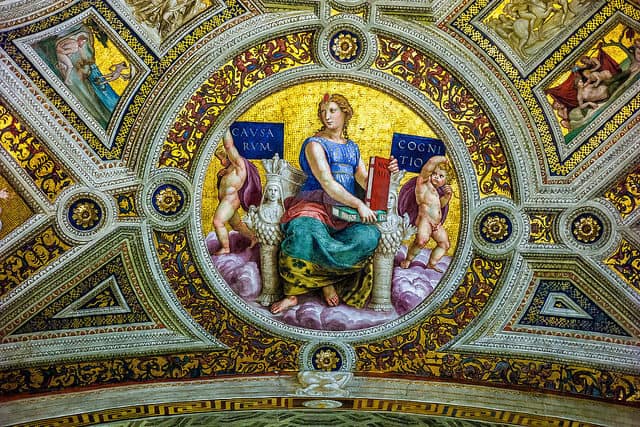“So, you’re kind of irrelevant?”
Her question caught me off guard, and although I had no immediate response for my fellow grad student, a part of me had to admit that she had a point.
I have chosen a way of life that many today would refer to as archaic: I am a member of a Roman Catholic religious order founded nearly 500 years ago. As a member of this order I can neither make money nor make my own career decisions. I don’t have a career. I have been assigned to study classical languages for the next 2 years; that is to say: dead languages.
While the novelty of such a life might be interesting or even exotic as a conversation starter, it does become difficult to locate the relevance of what I’m doing as opposed to med school, business, or engineering. These disciplines seem to have a clear point. What, it might be asked, is the point of studying dead languages?
This is not a phenomenon restricted to Jesuits in studies. It is becoming an increasingly difficult question to answer for anyone studying the liberal arts.
Our national trend of abysmal test scores in both math and science has rallied public officials to push for increased funding for STEM education and greater attention to technical skill sets. Some lawmakers, including Florida’s Gov. Rick Scott, have recently gone so far as to call for the defunding of what has been labeled “luxury disciplines” like art history and anthropology. In this view, it would appear that global competition defined through technological utility has rendered the humanities irrelevant; or at the very least, expensive luxuries. In such an environment my interlocutor’s question is more than understandable. What, if any, purpose do the traditional liberal arts serve? Have they indeed become irrelevant?
Well one thing Latin, a dead language, can help us with is a little etymology. The terms “liberal arts” and “humanities” come from the Latin words for “free” and “human” respectively. So the liberal arts are those arts which liberate us. Liberate us from what? From being less than what we truly are: human.
As animals we need to eat and we need to sleep and, as it turns out, we need to work for those necessities. But we are more than simply animals; at the very least we are incredibly complex animals. We are animals that laugh, cry, love, and invent. We are animals which appreciate things we can’t physically locate like justice, courage, goodness, and beauty.
The liberal arts are those disciplines which cultivate and sharpen these uniquely human experiences. Practical and utilitarian skills are both important and necessary for sustaining life, but, as Plato reminds us, it is living well, rather than simply living, which should be our goal. These “liberal arts”, as opposed to the more practical disciplines, are intended to invoke questions like: “How ought I to live?”
In a recent article on America’s obsession with STEM education, Fareed Zakaria remarks that the United States has consistently led the world in technological dynamism and economic innovation; a feat accomplished in part by the same traditionally broad liberal arts curriculum which we are now being encouraged to abandon:
Exposure to a variety of fields produces synergy and cross fertilization. Yes, science and technology are crucial components of this education, but so are English and philosophy. When unveiling a new edition of the iPad, Steve Jobs explained that “it’s in Apple’s DNA that technology alone is not enough — that it’s technology married with liberal arts, married with the humanities, that yields us the result that makes our hearts sing.
Ask anyone about their personal interests or how they spend their free time and I am willing to bet that it has some connection to the humanities: movies, literature, music, art. These are the things we live for; the seemingly useless things which serve no greater purpose than the exercise of our own humanity.
I still vividly remember my first philosophy course in college. Wrestling with Zeno’s paradoxes, a problem in ancient physics, sincerely challenged my ability to think abstractly. But beyond an exercise in abstract reasoning, the course caused me to reflect on questions which I had never really considered before: questions about virtue or what constitutes knowledge versus opinion. It also caused me to sincerely question my religious beliefs: “What was the purpose of all this?”; or as Heidegger put it “Why is there something rather than nothing?” This sincere questioning shortly led me to change my major and eventually to discern a Jesuit vocation.
And so I study the humanities because they teach me how to be human; they open my eyes to the collected wisdom and beauty of our unique existence and its reflected experience. We humans study poetry, philosophy, literature, dance, and yes, even dead languages because that is what we do; and we do it well.
Aristotle, who wrote, lived and spoke in a dead language, had this interesting idea about the relevancy of disciplines. He thought that because some disciplines are done for their own sake, and not for the sake of something else, they must be the greatest of disciplines.
The liberal arts may be the most irrelevant disciplines; but if Aristotle is right, that also makes them the greatest.
******
Cover image courtesy FlickrCC user Alessandro Grussu.


